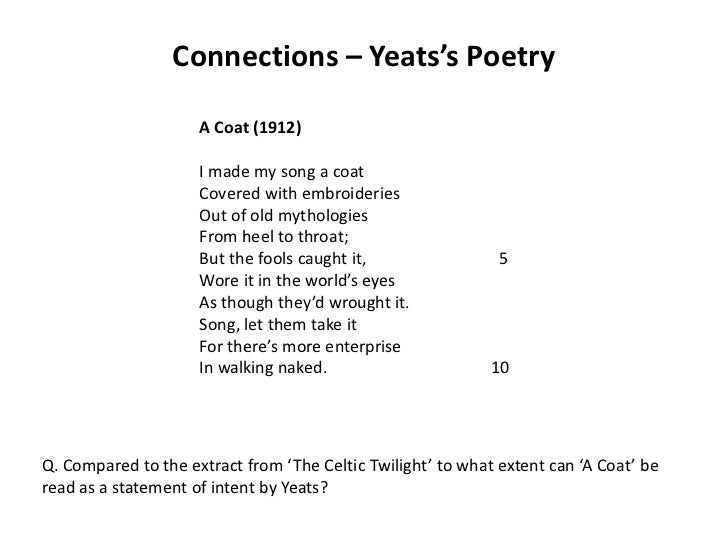
#WILLIAM BUTLER YEATS STOLEN CHILD FULL#
Yeats’ Most Famous Poem, The Stolen Child. The Stolen Child WHERE dips the rocky highland Of Sleuth Wood in the lake, There lies a leafy island Where flapping herons wake The drowsy water rats There we've hid our faery vats, Full of berrys And of reddest stolen cherries. William Butler Yeats 's 'The Stolen Child' is a poem that combines Irish mythology, mystery and romanticism as it pertains to childhood, and in juxtaposition with the modern world. by Cyril Bradley Rootham (1875 - 1938), "The stolen child", published 1911 The Irish poet William Butler Yeats is largely regarded as one of the most significant literary figures of the 20th century.Read millions of eBooks and audiobooks on the web, iPad.
#WILLIAM BUTLER YEATS STOLEN CHILD FREE#
by Gloria Edith Manson, "The stolen child", 1956 Read A Study Guide for William Butler Yeatss The Stolen Child by Gale,Cengage with a free trial.Come away, O human child To the waters and the wild With a faery, hand in hand, For the world's more full. by Steven Ebel, "Come away!", 2011, from Irish Lullabies, no. Where dips the rocky highland Of Sleuth Wood in the lake, There lies a leafy island Where flapping herons wake The drowsy water-rats There we've hid our faery vats, Full of berries And of reddest stolen cherries.

1947), "The stolen child", 2005, from Three Magical Songs, no. THE STOLEN CHILD In Irish folklore, it was said that fairies sometimes came in the night to steal children from. his early poetry and drama acquired ideas from. Musical settings (art songs, Lieder, mélodies, (etc.), choral pieces, and other vocal works set to this text), listed by composer (not necessarily exhaustive): Explains that william butler yeats was an irish poet, dramatist, and prose writer. The fairy addresses the child and points out. WebThe Stolen Child by William Butler Yeats (1865-1939) - Free to print. Yeats was included in the volume of poems entitled Crossways published in 1889.

For the world's more full of weeping than you can understand.įor the world's more full of weeping than he can understand.įirst published in Irish Monthly, December 1886.


 0 kommentar(er)
0 kommentar(er)
